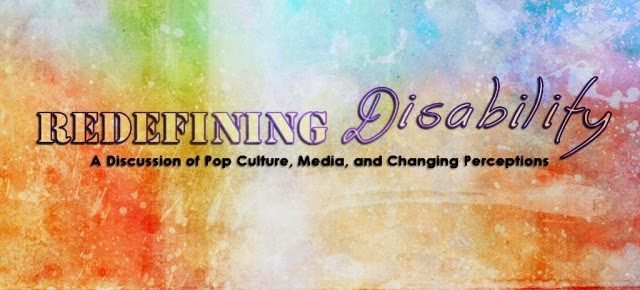 |
|
|
What things are most important to you when it comes to media representation for people with disabilities or your disability in particular?
I absolutely hate when the media plays the "poor pitiful thing" ploy. I've been involved with many fund raisers for the Arthritis Foundation. When they play the sympathy card, I tend to bow out.
My daughter, who was afflicted with Juvenile Rheumatoid Arthritis, did her part for as long as she could remember back with fund raising also. She was diagnosed at 18 months old and is now almost 40. That's a pretty long time. She didn't like to appear on camera so we taped her doing ordinary kid stuff with concessions and various braces. She always portrayed an normal kid just having fun except with the physical therapist. That brought tears to her eyes usually. She did appear, at 10 years old, once on a live telethon and described what an ordinary day for her was like, but that was it. That was okay with her. It was her paying the Foundation back for umpteen dozen braces and splints they partially funded for her over the years. It was told in a matter-of-fact matter, not don't you pity me. Even today, she doesn't mention the fact that she has Rheumatoid Arthritis unless she has to.

What was astounding to me was all the "give $$ emails" I've gotten from the National Stroke Association since I first contacted them almost three years ago. I figured they were run like the Arthritis Foundation with resources available for stroke survivors. Very little in resources available that would really help but once you get on their list every week there is something in my email about donating money.
I'm like "Doh! I haven't got any money to donate. I had a stroke! Isn't that what you are supposed to do is help me?"As far as regular media hype about disabilities due to stroke, the ad campaigns are pretty accurate. But more valuable information is gotten from actual stroke survivors who get tired of hearing the same things from the professionals like:
- Every stroke is different.
- No answers about recovery or how to recover.
- Plateaus and "It's the best you're going to recover."
The NSA (National Stroke Association) is more geared for scarfing up your money and offering little in return. Well, I take that back. When I was in hospital rehab, I got tons of fact, figures, etc on how to prevent and identify strokes. How much sense does that make after the fact??? That's where a majority of money is spent...on stroke awareness and prevention rather than being of assistance to us who've had a stroke. Isn't that like closing the barn door after your horse have run out? As a stroke survivor, that's my take on this organization.
 I much prefer the stroke tribe (online stroke survivors) and my support group. They have more information and help than the NSA could ever hope for.
I much prefer the stroke tribe (online stroke survivors) and my support group. They have more information and help than the NSA could ever hope for.I'm not knocking the importance of prevention and public awareness, I don't. It's important to keep others from being in my boat. My question is this...only one-third of all strokes die, what about the survivors?
Yes, stroke accounts for a large percentage of people with life long lasting disabilities. The media is quick to shout when this public figure or that suffers a stroke, but it doesn't depict the whole story. I guess that's one of the reasons so many of us blog and self-publish books. We honestly do a better job than the media. If we actually had the media behind us, we could move mountains.
When the media covers strokes, it is glossed over. They show the worst case scenarios rather than functioning people in spite of their disabilities. It goes back it the "poor pitiful thing" attitude. Cases in point (I'm going to age myself now), Dwight D. Eisenhower had a stroke in 1957 and had aphasia. He remained President for four more years afterwards. Sharon Stone had a stroke and is still acting.
We are regular people. Yes, we've had a stroke, but life goes on. That's why we are called survivors. We have visible and not so visible disabilities, but we carry on.

No comments:
Post a Comment
I love to hear from you! Agree, Disagree, Indifferent...no matter. Even if it's to say you were here.